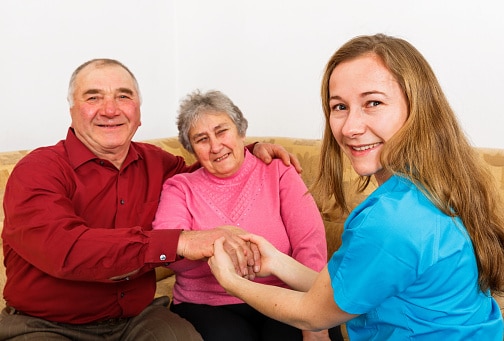
Understanding Dementia Stages: A Guide to the FAST Scale for Caregivers
This article has been medically reviewed by Dr. Martin Duggan in 2021
This content is not intended to be a substitute for professional medical advice, diagnosis, or treatment. Always seek the advice of your physician or another qualified health provider with any questions you may have regarding a medical condition.
If your loved one has been diagnosed with dementia, it’s natural to seek ways to better understand their condition and how it progresses. Dementia encompasses the gradual cognitive decline caused by various diseases, with Alzheimer’s being the most common. Thankfully, there are tools available to help you comprehend your loved one’s condition, such as the FAST Scale.
The FAST Scale, which stands for Functional Assessment Staging Scale, is an invaluable tool developed by Dr. Barry Reisberg, an expert in geriatric psychiatry. It enables healthcare professionals and family members to grasp the different stages of dementia, focusing on an individual’s ability to perform daily functions rather than just cognitive decline.
By using the FAST Scale, caregivers, family members, doctors, and medical providers can all be on the same page when it comes to caring for someone with dementia. This tool provides a deeper understanding of the condition and aids in preparing for the upcoming stages.
The FAST Scale breaks down dementia stages into seven categories, offering a more nuanced perspective compared to the commonly used early, middle, and late-stage classifications. The stages are as follows:
1. Normal adult
2. Normal older adult
3. Early dementia
4. Mild dementia
5. Moderate dementia
6. Moderately severe dementia
7. Severe dementia
Each stage on the FAST Scale has associated factors, and it’s important to note that this tool is not definitive in determining the individual’s condition. Symptoms may vary, but the scale provides a helpful framework for understanding and discussing their condition.
Let’s explore each stage on the Alzheimer’s FAST Scale in more detail and how they may manifest.
Stage 1: Normal Adult
In this stage, the individual does not exhibit cognitive or functional decline. A healthy adult without dementia symptoms would fall into this category.
Stage 2: Normal Older Adult
Stage 2 involves subtle memory loss that the individual may recognize in themselves. They may experience minor incidents like misplacing car keys, forgetting names, or disruptions in their daily routine. These symptoms are often considered a normal part of aging.
Stage 3: Early Dementia
At stage 3, cognitive and functional decline becomes noticeable to coworkers and family members. Memory loss starts to affect routines, and individuals may struggle with work duties or financial responsibilities. Denial or attempts to cover up these changes are common, and conversations about seeking help begin to take place. Stage 3 typically lasts around seven years.
Stage 4: Mild Dementia
In stage 4, individuals experience further decline and require assistance with tasks such as event planning or cooking. They are aware of their cognitive and functional decline, which may lead to increased anxiety, anger, or denial. Caregivers must exercise patience during this stage as the individual may exhibit dangerous behaviors and sundowning. Stage 4 usually lasts about two years.
Stage 5: Moderate Dementia
Considered the most challenging stage for caregivers, stage 5 is characterized by a loss of awareness in the individual. Cognitive and functional degeneration continues, but their understanding of the decline diminishes. They become heavily reliant on others for daily responsibilities, and the recognition of loved ones may fade. Assistance with basic tasks becomes crucial, and behavioral changes like pacing or wandering may occur. Stage 5 typically lasts around one and a half years.
Stage 6: Moderately Severe Dementia
At this stage, your loved one will need assistance with essential care needs such as bathing, using the restroom, and dressing. Incontinence, mobility issues, and difficulty speaking become prevalent. Constant supervision and support are necessary, and considering a part-time caregiver or a residential care facility might be appropriate. The individual may reminisce about childhood memories and speech may be difficult to understand. Stage 6 can last from three to ten months.
Stage 7: Severe Dementia
Stage 7 is the final stage, also known as end-stage dementia. Speech significantly declines, and mobility becomes extremely limited. Eating and drinking may decrease, and the individual may lose physical abilities, including the ability to smile. The body may stiffen or contract, and stage 7 typically lasts around one year, culminating in the individual’s passing.
Final Thoughts
While the FAST Scale is primarily focused on the functional aspects of dementia, it provides valuable insights into the stages of the disease. It’s important to remember that individual experiences may vary, but the scale serves as a useful tool for caregivers and medical professionals to navigate and understand dementia.
In conclusion, Alzheimer’s and dementia present significant challenges, but the FAST Scale can assist in comprehending the disease and the symptoms exhibited by your loved one. Whether you’re a caregiver or a family member, knowing the stages outlined by the scale can help you prepare, access appropriate care, and provide support throughout the dementia journey.
Sources:
- Reisberg B. Functional assessment staging (FAST). Psychopharmacol Bull. 1988;24(4):653-9. PMID: 3249767.
- Hospice Eligibility Criteria, Emed, emed.unm.edu
- Sundowning: Late-day confusion, Mayo Clinic, www.mayoclinic.org
- Amador S, Goodman C, Robinson L, Sampson EL; SEED Research Team. UK end-of-life care services in dementia, initiatives and sustainability: results of a national online survey. BMJ Support Palliat Care. 2018;8(4):424-427. doi:10.1136/bmjspcare-2016-001138
Related Articles

Elder Law Attorneys: A Comprehensive Guide
If you are someone who is taking care of a senior or has an elderly loved one, you should consider working with an elder law attorney. Though you may not expect it, individuals begin to face new and more complex legal concerns as they get older. Actions that may have seemed trivial when they were […]

When Is It Time for Assisted Living?
Wondering if it is time for assisted living for your loved one is a common question for caregivers. As a caregiver, you might have been considering the question for months or possibly even years. Your loved one might have declined to continue the discussion as the thought of moving out of their family home and […]

All About Adult Day Care: Community and Costs
Adult day care is a fairly new concept for caregivers. The basic idea is to provide a secure place where seniors can enjoy social activities during the day and be provided nursing care as needed. It’s a hybrid model of eldercare that prioritizes community. At the same time, seniors get help with common custodial tasks […]

Respite Care: An Overview
Caregiving can be overwhelming at times. That’s why taking a break is essential for recharging your battery. Respite care, also called short break care, is a way for caregivers to get temporary care for their loved ones so they can take some time to rest. Getting this “me time” of respite care can renew the […]

A Caregiver’s Guide to ADLs and IADLs
This article has been medically reviewed by Dr. Martin Duggan in 2021. This content is not intended to be a substitute for professional medical advice, diagnosis, or treatment. Always seek the advice of your physician or another qualified health provider with any questions you may have regarding a medical condition. As a family caregiver, your […]

What is a Mechanical Soft Diet? Explanation, Preparation, and Meal Ideas
This article has been medically reviewed by Dr. Martin Duggan in 2021. This content is not intended to be a substitute for professional medical advice, diagnosis, or treatment. Always seek the advice of your physician or another qualified health provider with any questions you may have regarding a medical condition. As a caregiver, you may […]